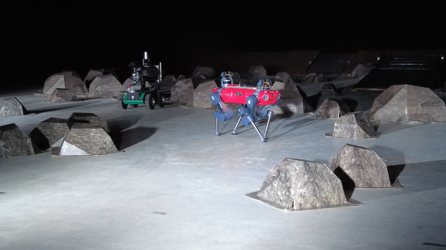
Simulating tumbling reaction wheel reentry
Thank you for liking
You have already liked this page, you can only like it once!
A reaction wheel – one of the heaviest parts of a space mission, its changing rotation used to shift a satellite’s orientation – seen in a plasma wind tunnel belonging to the High Enthalpy Flow Diagnostics Group (HEFDiG) at the University of Stuttgart Institute of Space Systems (IRS). Arc-heated gas in the test chamber reaches speeds of several kilometres per second, reproducing reentry conditions, while the reaction wheel itself is being rotated, reproducing the tumbling that takes place as a satellite plunges through the atmosphere.
The reaction wheel itself comes from Collins Aerospace in Germany, which has supported Design for Demise (D4D) activities for many years and introduced several modifications to their TELDIX reaction wheel making it more likely to come apart during satellite reentry in support of demisability.
This test clip was presented during this year’s Space Mechanisms Workshop at ESA’s ESTEC technical centre in the Netherlands, focused on current and future requirements and guidelines to reduce the risk from orbital debris, including ESA’s Zero Debris Charter. The event was attended by more than 130 space mechanisms specialists from European industry and academia.
-
CREDIT
ESA-HEFDIG/IRS -
LICENCE
ESA Standard Licence
-
Closed captions available Captions and subtitles are available (automatically generated by YouTube) - select your language using the YouTube player controls. A non-YouTube version is available using the 'download' button above.
-
Close-up
-
-
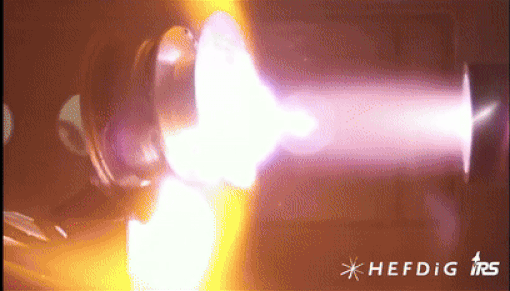
Blowtorch effect of satellite reentry
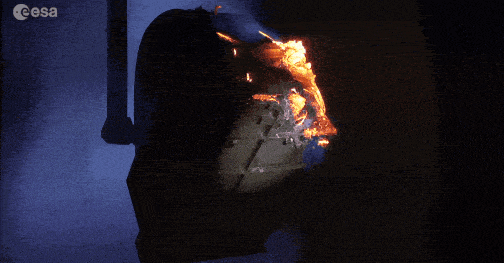
Testing a fiery reentry
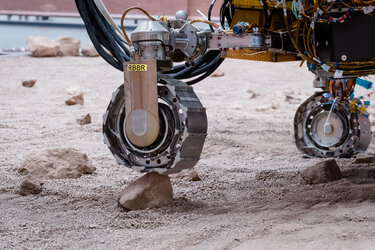
A wheeled lab for Mars
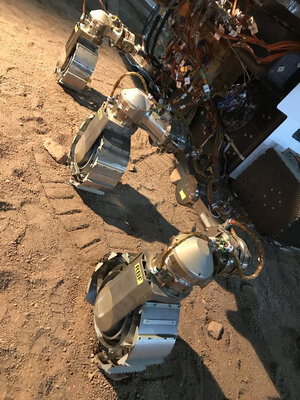
Wheels detail of ExoMars Amalia rover
